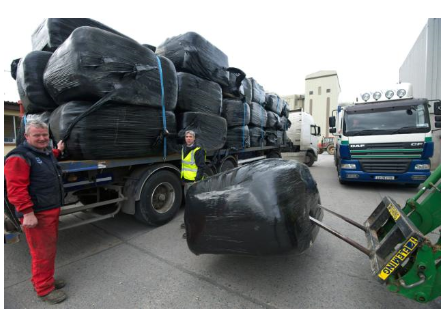Our Dairy Industry – We Need to Value What We Have

It was only a few years back when the Irish dairy sector was considering the implications of a quota-free future, and wondering how the capacity could be put in place to handle all the addition milk that would be expected. Well, we’ve now entered the quota free world, and the questions regarding capacity have been answered. Irish milk processors have invested hundreds of millions of Euros in additional capacity, and crucially, in real value added processes. New plant has been installed, or is being installed, and, not withstanding a predictably very busy peak period, this year, the capacity is and will be there to process all the milk that Irish farmers can produce.
This picture is a stark contrast to the position on our neighbouring island, where farmers are, understandably very nervous, looking at significant volumes of distressed milk trading at ridiculous prices, as well as other suggestions of Skim Milk being dumped.
Why are we in a more comfortable position? It’s our ownership structure. The Irish dairy industry is dominated by co-ops and “co-op gene pool” companies, who are committed to their suppliers and to the industry, and who have invested heavily in the future of the sector. In addition, it doesn’t seem like very long ago that the Irish dairy industry was characterised by some as being low tech, dependent on intervention markets for basic commodities, and paying poor milk prices. Look where we are today. Irish co-ops, including Ornua have invested heavily and wisely in value added products and routes to market, to such an extent that the milk price being paid this spring is significantly ahead of our major European competitors. Even Friesland Campina, one of the most advanced dairy companies in the continent, will be paying a May milk price equivalent to 26.5c per litre, at 3.6% fat and 3.3% protein. UK and French farmers have been told that their processors don’t want any more milk. They are being offered A, B and even C contracts, with the no real possibility for expansion. The message that Irish farmers are getting from their co-ops is clear; “we’ll take all the milk you can produce”, at prices that are increasingly amongst the highest in Europe. Not only that, but the commitment of Irish Co-ops to their members could really be seen two years ago, when we had the fodder crisis, and co-ops put huge effort into hauling fodder from Europe.
Is there a lesson in this? Maybe it’s that we should appreciate the structure we have, and strengthen our co-ops further by participating in their structures and actively trading with them. Our dairy industry and the opportunity it is affording to farmers has very quickly become the envy of Europe. We should give it the credit it deserves.
By TJ Flanagan